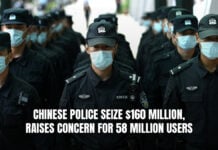
In order to keep up with the rapid development of digitalization, Hangzhou has proposed to promote the digital empowerment of the industry, accelerate the digital transformation of traditional industries and SMEs, create 2 provincial-level factories, cultivate 5 main factories at the municipal chain, 20 smart factories, and 50 digital workshops in the Government Work Report for 2023, laying the foundation for the strategic emerging industries such as visual intelligence, cloud computing big data, high-end software, artificial intelligence, network communication, and integrated circuits.
Promoting Digital Transformation in Hangzhou
The city of Hangzhou recent put out a government work report outlining how the area is planning to promote the digital transformation of traditional industries, as well as become a leader in strategic emerging industries such as visual intelligence, cloud computing, big data, high-end software and integrated circuits. The report also highlights its aim to create digital industry clusters, empower the industry with digital technology and build a National Visual Intelligent Manufacturing Innovation Center.
In an effort to make this happen, Hangzhou authorities are designating two factories at a provincial level, five key factories at a municipal level, twenty smart factories and fifty digital workshops. This is part of the greater plan of digitalizing local enterprises and SMEs in order to reduce costs and enhance overall efficiency. The government also mentions its “forward-looking layout” of the Yuan universe, empty sky information, and bionic robots, future medical and flexible electronics.
It’s no wonder that the Chinese government is taking big steps in the right direction to become a leader in digital transformation, considering President Xi Jinping himself believes that blockchain technology should “play an important role in the next round of technological innovation and industrial transformation”. In 2019, Xi called for increased study and investment in the space.
Although the Chinese government has taken a stance against traders and miners in the private cryptocurrency market, and adopted regulations for the industry, this hasn’t impeded the country’s ambition to join the digital revolution. To encourage digital adoption and help familiarize citizens with digital money, the People’s Bank of China (PBOC) continues to roll out digital yuan events across the country.
Furthermore, Hangzhou recently approved the formation of the National Blockchain Technology Innovation Center. The Center is led by the Beijing Academy of Blockchain and Edge Computing and will help develop core blockchain technologies, with a focus on high-level technological self-sufficiency and self-improvement.
The city is also leveraging the opportunities offered by the Metaverse or “virtual world” – with its own regulations, applications, and incentives. Towards the end of last year, Beijing Guoan Football Club launched a collection of non-fungible tokens (NFTs) – a type of asset in the Metaverse. What’s more, the Beijing Municipal Administration for Market Regulation has initiated a “Beijing Urban Sub-Center Metaverse Innovation and Development Action Plan (2022-2024)”, to promote participators of the industry and make it more secure.
Additionally, the Chinese municipality of Suzhou has set an ambitious target of 2 trillion CNY ($300 billion) for e-CNY CBDC transactions in the city by the end of 2023, and $30 billion in e-CNY loans for small and mid-sized businesses by the end of the year.
Lastly, Hong Kong published its 2023 budget, earmarking $6.4 million (HK$50 million) for developing its Web3 ecosystem, as well as setting up a task force focused on virtual asset development.
As of now, it seems that Hangzhou, as well as other regions in China, have set goals to pioneer the worldwide digital transformation and become a beacon for blockchain technology and the Metaverse. As the strategies of the Chinese government are set in motion, it remains to be seen what the future holds for the nation (and world).



